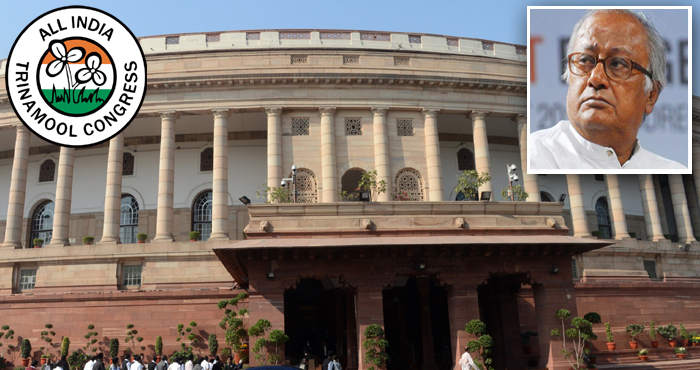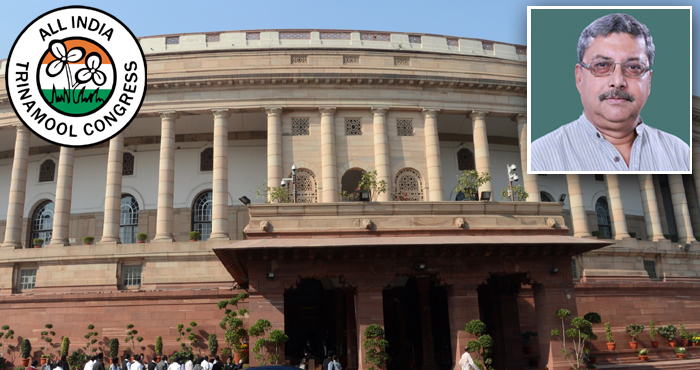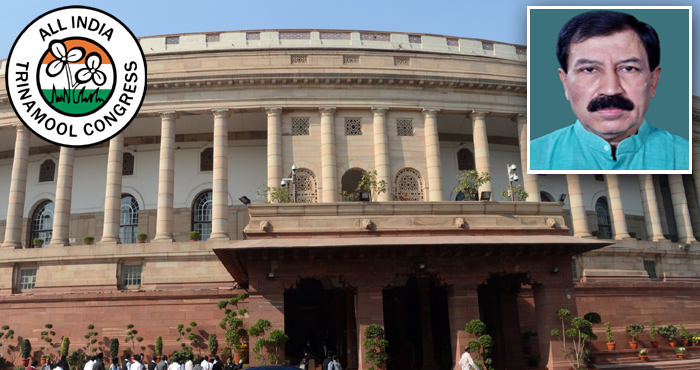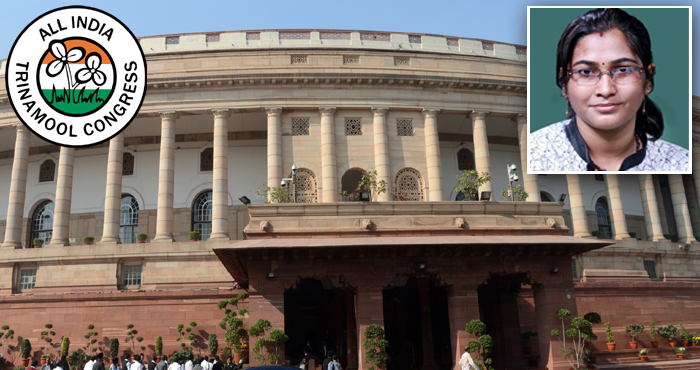Thank you, Deputy Speaker Sir.
Rabindranath Tagore said, “Children are living beings, more living than grown up people who built cells of habits around themselves. Therefore it is absolutely necessary for their mental health and development that they should not have in schools for lessons but the world whose guiding spirit is personal love”.
Deputy Speaker Sir, every child is a blessing of God representing the greatest assets of a nation and future of nation. It is unfortunate therefore when a child has become labourer in our prevailing social system. Every nation believes that employers should not be permitted to employ children and parents, no matter how poor they are, should not be allowed to keep children out of the school. It is up to the Stats to stand as guardian, protecting children against child labour. For poor families, children are economic assets.
Sir, by introducing Clause 5 of this Bill this Central government is opening a backdoor to bring child labour. In fact now it is permitted. Through this amendment the children while will be allowed to do the work to help his family or family enterprise which is other than any hazardous occupation.
In a country like ours where the children are not in a position to go to school, in a country like ours where the children are forced to go to work by their parents or their guardian, this Clause 5 is against the basic conception of protecting the child.
What do you mean by school hours? After the school hours will the child be permitted to go to work? This Clause has really hit the basic concept of the Act itself. Therefore it should not be brought. I should request the Hon’ble minister please don’t press upon Clause 5 itself.
Sir, India is the World’s largest democratic country and the world’s second fastest growing major economy but billions of children, all under 24 years of age, are workers, labourers. In fact, in India the percentage of child labour is 23%, the highest in the world. This is a matter of great sorrow for us. This is not a pride at all. Poverty as well as lack of education facilities contributed to the figure. A recent report produced by the International Confederation of Free Trade Union says that there were as many as 4.98 million children working in India’s agricultural, industrial and commercial sectors.
Therefore, today Sir, in this background, Clause 5 is giving the license to bring the child in the working fields. India’s booming economy has taken advantage of children workers towards its growth. While child labourers can be found in urban dwellings, around 80 per cent child labourers are found in rural areas, forced to work in agricultural activities such as stunning, livestock rearing, forestry and fisheries. The practice is widely prevalent in many third world countries such as China, Pakistan, Bangladesh, Nepal and Brazil. But the matter is of great concern in India.
Sir, Article 24 of the Constitution prohibits the employment of children below the age of 14 years in any factory or mine or engaged in any other employment.
Article 39, which comes within the Directive Principles of the Constitution, provides that the health and strength of workers of men and women and young children are not abused to enter avocation unsuited to their age or strength. Article 39(A) provides that children be given opportunities to develop in a healthy manner and in conditions of freedom and dignity, and that childhood and youth are protected against exploitation and moral and material abandonment. The founding fathers of the Constitution emphasised the role of the child and the need for their development. Dr Ambedkar projected children’s rights in the directive principles of state policy as their deprivation had a dangerous effect on the efficiency of democracy and the rule of law.
Prior to the Constitution coming into force, there was an Act, The Children (Pledging of Labour) Act 1933, which prohibits the pledging of labour for children for employment and prescribing penalty for persons and guardians pledging child labour, that is, it prohibits any employment for anyone below 14 years of age.
A new Article 21(A) has been incorporated, which came into effect in 2010, stipulating that the State provides free and compulsory education to all children aged six to 14 years. Compulsory education to children up to 14 years was passed with the enactment of The Right of Children to Free and Compulsory Education Act, or The Right to Education Act, 2010.
Sir, there is no death of Acts in our country. The problem is the implementation of the Act, the execution of the Act. This is not done in our country. Sir, the National Child Labour Project, which started its operation in 1988, was an integral part of the national policy on child labour, as adopted by the Ministry of Labour and Employment, Government of India, 1987. The National Child Labour Project (NCLP) addresses the issue through the following activities: a survey to identify children engaged in hazardous occupations and processes, withdrawal of children from hazardous employments and processes, and rehabilitation of children withdrawn from work, especially through schools established by the project society.
This NCLP operates through project societies run at the district level, with the district magistrate or the district collector as the chairman and an officer to work as the project director for its implementation. The special schools under NCLP are run by NGOs, local self-governments or directly by the project society. This school enrols working children from nine to 14 (years of age) and until they reach the age of 14. Each school, with two educational instructors and one vocational instructor, has provision for 50 children and are given basic education and vocational training.
Sir, until August 2009, the children of NCLP schools were provided cooked lunchtime meals, which have now been merged with mid-day meals under Sarva Shiksha Mission. Every child is paid a pension of Rs 150 per month whereby the amount is deposited in a savings account in the name of the child on a monthly basis, which can be withdrawn only at the time of mainstreaming.
Sir, in West Bengal, under the chief ministership of our greatest leader, Mamata Banerjee, all the 20 districts are covered under NCLP. Out of 985 sanctioned special schools, 963 are functioning, with a total of 47,200 children.
Sir, we have a silver lining – that now child labour has decreased. According to the 1971 census report, it was 10.75 million. According to the 1981 census, it was 13.64 million. According to the 1991 census, it was 11.28 million and according to the 2001 census, it was 12.66 million. But in 2011, it came down to 12.62 million (provisional).
Sir, in spite of the constitutional provisions and the various Acts enacted by Parliament, compulsory education has not become successful for various reasons. The reasons are: lack of educational facilities in rural areas, failure to build infrastructure and employ more teachers, and attract more rural children to education.
India carried over a large number of child labour after Independence; in fact, there was no account of child labour before the 1971 census. The British regime in pre-independence India did not take any effective steps for promoting education in rural areas and the availability of educational facilities was so marginal that only few students could take advantage. Religious concepts and caste systems were among the reasons, other remained away for the lack of interest in education before independence in India. Discouraging girls from education led to creation a huge number of child labour. Since poverty and destitutions are the main causes of child labour, labour inspectors are sympathetic to the families. That is why I am saying that Clause 5 defeats the basic concept of the prohibiting the child labour.
Sir, in a nutshell, the Central Government is responsible for not eliminating child labour from the soil of India. The International Labour Organisation estimates that 215 million children engaged in child labour worldwide in 2008 an estimated 14% in India between the age 5 and 14 years are engaged in child labour activities.
The Ministry of Women and Child development conducted studies on effects of child abuse covering 13 states, 12,447 children, 2324 young adults and 2449 stakeholders. It looked at different types of child abuse and evidences in age groups. The key findings of the study:
- a) 50.2% children are working 7 days a week.
- b) Boys and girls were physically abused equally.
- c) 56.38% children reported working in illegal and hazardous occupations.
- d) 65% of the children were working because of parental pressure.
This study shows that there is parental pressure to work as child labour. So, the Clause 5 needs to be revisited.
Education eradicated illiteracy and is a means for economic empowerment and an opportunity to lead a better life. Article 26, Sub-article 1 of Universal Declaration of Human Rights assures that everyone has the right to education which shall be free at least in the elementary and fundamental stages. We have an Act, we are having the constitutional provisions but it has not been implemented in the entire country. The agencies have failed to implement it. We are not in a position to bring every child of this country to school. The education system is the greatest failure in this country. Due to poverty, children are subjected to many visible and invisible sufferings and disabilities. The Convention on Rights of a Child, which was ratified by Government of India on 11 December, 1992, recognises the right of a child for full and harmonious development of his or her personality. Article 3 of the Convention mandates the best interests of the child is the primary consideration.
Sir, in our Constitution, Articles 21, 21A, 23, 24, 39E and F, 45 and 46 mandate compulsory education of children, socio-economic justice to children and their empowerment. Full growth of their personality socially, educationally, culturally, growing up is a matter of right.
Therefore, Sir, I will be end saying that laws are there, we have to implement them. And it has to be implemented very strictly. Labour Ministry of the Central Government must take care and must see that this is being implemented. Although education does not come under your ministry, but to protect the child labour, it is something you have to monitor indirectly. Child labour must be eradicated by promoting education and well-planned poverty alleviation and developmental schemes as well as through the imposition of on-trade actions on employment of children.
Thank you, Sir.






